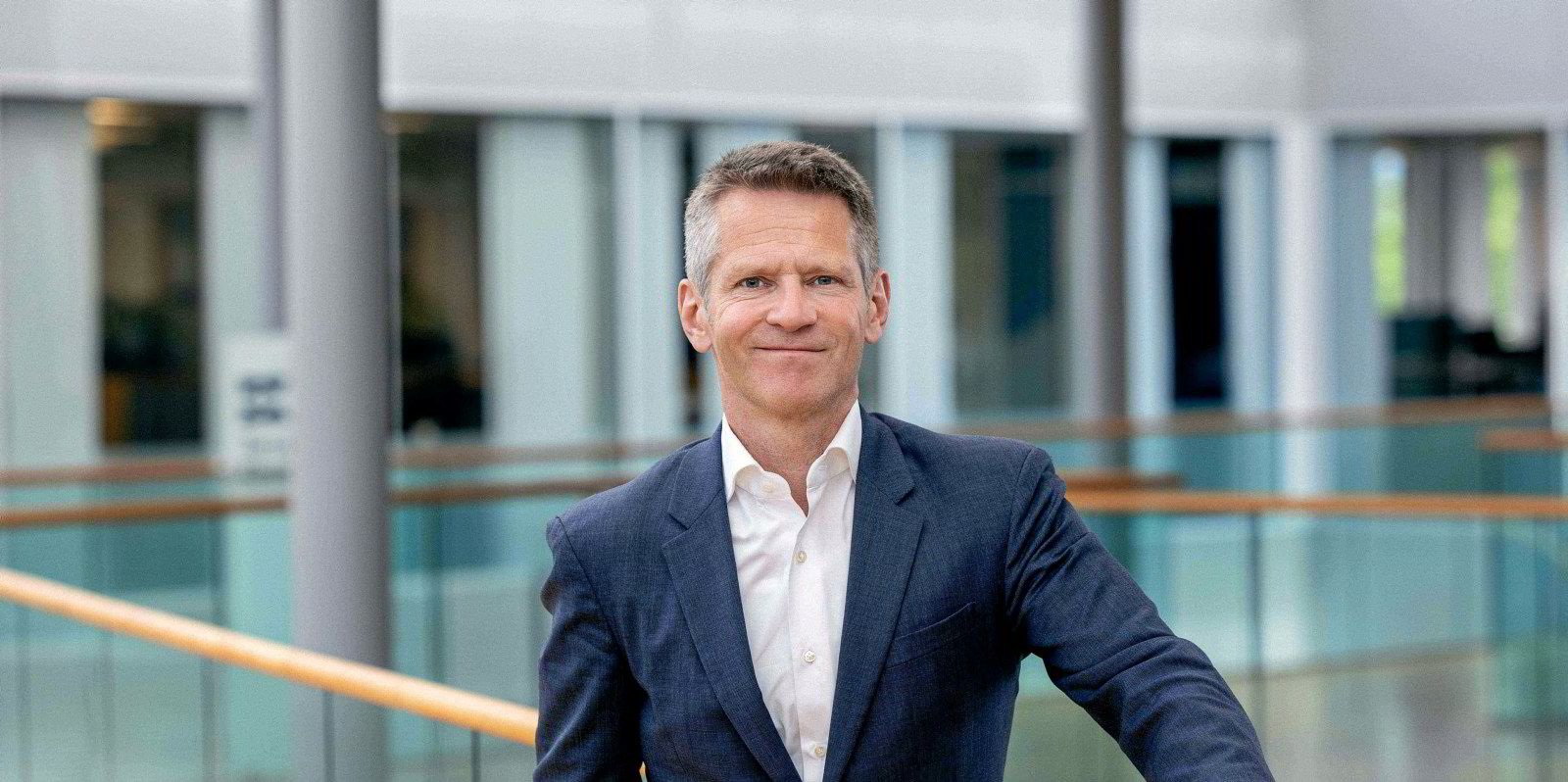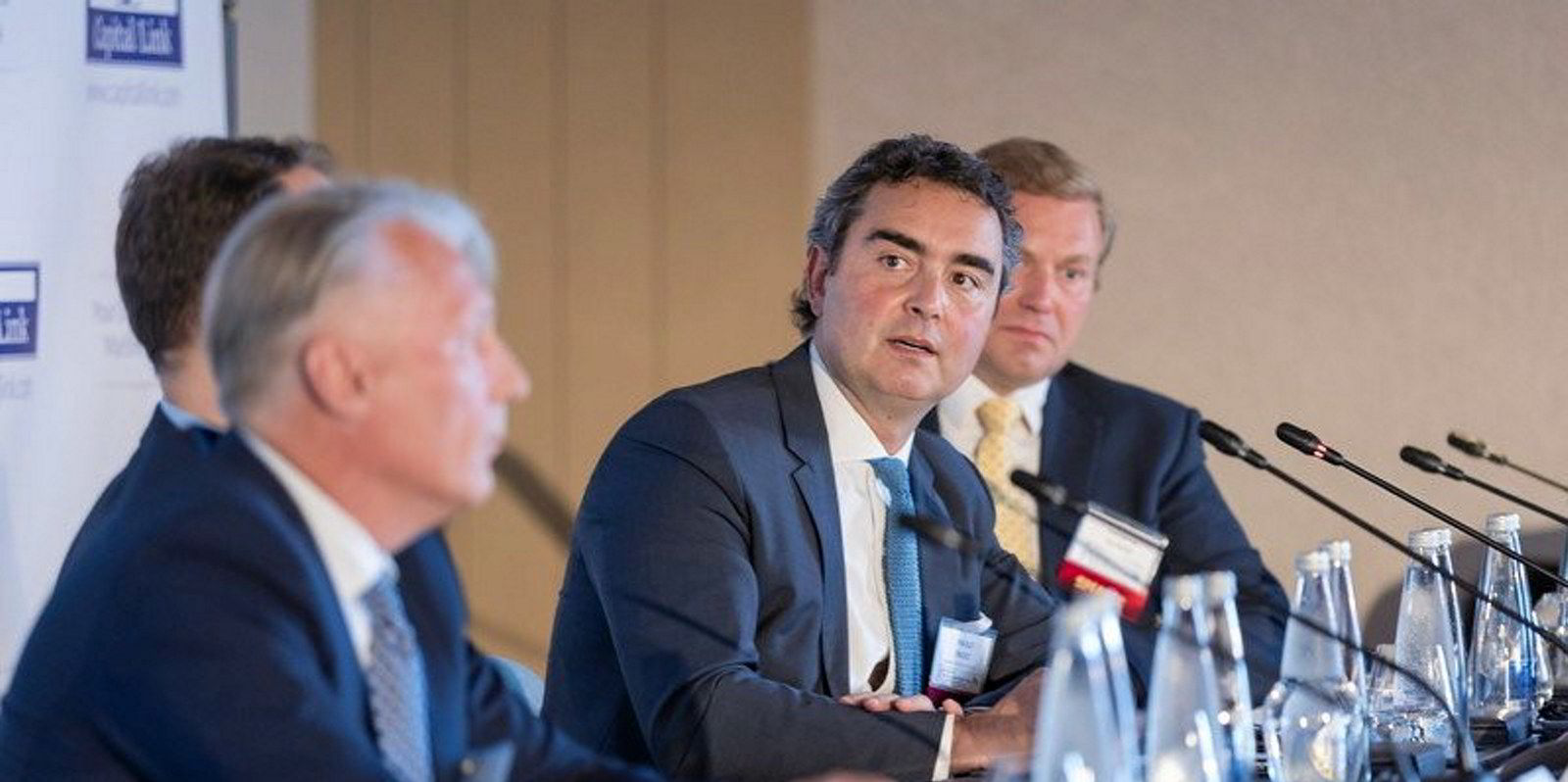Klaveness Combination Carriers (KCC) chief executive Engebret Dahm has voiced his frustration at “disappointing” climate change resolutions made last week by the International Maritime Organization.
A key meeting in London came up with a revised target to achieve net zero emissions “at or around 2050 to the extent that national circumstances allow”.
The IMO also plans to adopt a carbon pricing mechanism by 2025, but only after it has completed an impact study on the new measures.
Dahm told TradeWinds: “While there are a number of positives in the 2023 IMO Strategy, the overall impression is disappointing.
“After years of discussion, the strategy leaves a lack of confidence in the ability of IMO to drive the decarbonisation of shipping to align with the Paris Agreement.”
The shipping regulator has drawn criticism from environmental lobby groups after the decisions.
Dahm said: “It is especially discouraging that IMO did not manage to make a principal decision on the implementation of a global carbon tax based on the vessels’ actual carbon emissions.
“The vagueness of the form of carbon incentives proposed and the time frame for their adoption and implementation give the industry limited predictability for making its investment decisions with respect to new fuels and technologies.”
KCC has been vocal in its support for a levy to incentivise efficiency improvements, cut waste and start to transition to new fuels.
Efficiency improvements
Its fleet of vessels carrying both wet and dry cargoes can achieve emissions cuts of up to 40% compared with conventional tankers and bulkers, through the reduction of ballast legs.
In April, the Oslo-listed shipowner claimed a first in the tanker and bulker sectors by linking charter fees to CO2 emissions.
It said it has amended an existing contract of affreightment with Australian mining and metals group South32 to introduce carbon pricing.
The two sides signed a six-year charter in January 2022 to ship South32’s caustic soda to Australia.
Last week, the IMO also decided on a series of interim targets, including a 20% to 30% reduction in greenhouse gas emissions by 2030 and a 70% to 80% reduction by 2040, compared with 2008 levels.
It also decided that at least 5% of marine fuels must be zero or near zero emission fuels by 2030.
While shipping is already on the way to achieving the 2030 target, the 2040 target was described as “extremely challenging” by IMO secretary general Kitack Lim.
International Chamber of Shipping deputy secretary general Simon Bennett said shipowners would do everything possible to achieve the target.
But he warned that it would be achievable only with a levy system to incentivise the use of alternative fuel and compensate owners for the additional costs.
“This [target] can only be achieved if the IMO rapidly agrees to a global levy on ships’ [greenhouse gas] emissions to support a ‘fund and reward’ mechanism, as proposed by the industry,” Bennett said.




